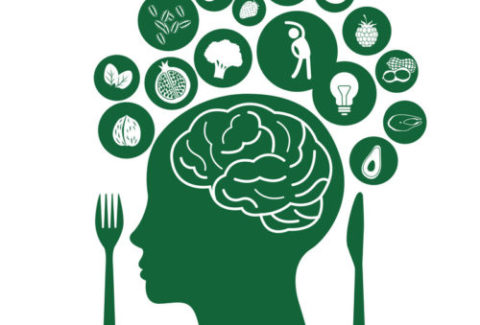Unlocking Healthy Longevity: The Intriguing Connection Between Infrequent Eating and Health Span

Unlocking Healthy Longevity: The Intriguing Connection Between Infrequent Eating and Health Span
In the realm of health and longevity, the adage “less is more” takes on a profound significance. Emerging from the depths of scientific research and traditional wisdom, a captivating concept has gained traction—the idea that eating less frequently could hold the key to an extended and healthier life[1]. This fourth article in the SWEET Nutrition Series delves into the science and philosophy behind infrequent eating as a potential pathway to unlocking healthy longevity and enhancing overall well-being.
A Glimpse into Intermittent Fasting[2]:
At the forefront of the less-frequent-eating movement lies the practice of intermittent fasting. Intermittent fasting involves cycling between periods of eating and fasting, allowing the body to experience extended periods without food intake. This approach has captured the attention of researchers and health enthusiasts alike, drawing connections between extended fasting periods and various health benefits. Here are five elements to keep in mind, for now:
Cellular Autophagy: A Fountain of Youth:
One of the mechanisms thought to underpin the benefits of intermittent fasting is cellular autophagy[3]. This intricate process involves the body’s cells recycling and removing damaged components. Intermittent fasting triggers autophagy, effectively acting as a “spring cleaning” for cells. This cleansing process has been shown to contribute to the longevity of cells and tissues, fostering overall health. This process is also essential for maintaining tissue homeostasis and preventing the accumulation of cellular waste products that can lead to various diseases and age-related conditions.
Metabolic Adaptation and Insulin Sensitivity:
Intermittent fasting also has a direct impact on metabolism[4]. With fewer eating instances, the body could adapt and optimize its metabolic processes. Insulin sensitivity, a critical factor in maintaining stable blood sugar levels, tends to improve during fasting periods. This improved insulin response can reduce the risk of type 2 diabetes[5] and metabolic disorders.
Reducing Oxidative Stress and Inflammation:
Oxidative stress and chronic inflammation are associated with various age-related diseases. Intermittent fasting has been shown to reduce oxidative stress[6] and mitigate inflammation[7], contributing to the preservation of cellular integrity and longevity. Oxidative stress occurs when there’s an imbalance between the production of Reactive Oxygen Species (ROS) and the body’s ability to neutralize them with antioxidants. These ROS, also known as free radicals, can damage cells, DNA, and proteins, contributing to various health issues. Factors such as pollution, unhealthy diets, smoking, and even intense exercise can elevate oxidative stress levels. On the other hand, inflammation is the body’s natural defense mechanism against harm. When triggered by injury, infection, or stress, inflammation sends immune cells to the affected area to heal and protect. However, chronic inflammation can become a double-edged sword, damaging healthy tissues and exacerbating conditions like cardiovascular disease, diabetes, and autoimmune disorders. Oxidative stress and inflammation often fuel each other in a vicious cycle. Oxidative stress can trigger inflammation, and ongoing inflammation can generate more oxidative stress. Breaking this cycle becomes pivotal in maintaining health and preventing chronic diseases.
Caloric Restriction: The Science of Less:
The concept of less-frequent-eating aligns with the principle of caloric restriction—a dietary approach that involves reducing daily calorie intake. Studies have shown that caloric restriction can extend lifespan and improve health span. Intermittent fasting can mimic the effects of caloric restriction by creating periods of reduced caloric intake[8]. Caloric restriction’s effects on longevity and health are attributed to several interconnected mechanisms:
- Metabolic Rate: Reducing calorie intake can lead to a decrease in metabolic rate, which slows down processes associated with aging and cellular damage.
- Oxidative Stress: Caloric restriction can mitigate oxidative stress, reducing the damage caused by free radicals and contributing to cellular health.
- Inflammation: Caloric restriction intake may lower chronic inflammation levels, which are linked to age-related diseases such as cardiovascular conditions and neurodegenerative disorders.
- Autophagy: Caloric restriction stimulates autophagy, the body’s cellular “clean up” process that removes damaged components and supports cellular renewal.
- Insulin Sensitivity: Caloric restriction intake can improve insulin sensitivity, reducing the risk of type 2 diabetes and promoting metabolic health.
Traditional Wisdom and Modern Science:
The concept of infrequent eating isn’t entirely new. Many cultures and religions incorporate periods of fasting as a practice that goes beyond spirituality or religious practices[9] and touches on health. Ancient wisdom is now echoed by modern scientific findings, adding credibility to the belief that less frequent eating could be a path to prolonged health and vitality.
Personalization and Harmony
While the science behind infrequent eating is compelling, it’s essential to approach this concept with harmony and personalization. Individuals’ nutritional needs vary, and extreme fasting practices may not be suitable for everyone. This is why the SWEET Institute Model is rooted in the concept of empowerment. When patients and clients are empowered to cultivate a healthy self-relationship—discovering their true selves and aligning with that discovery, their physical intelligence will significantly amplify. This enhanced self-awareness will enable them to tailor intermittent fasting to their unique requirements. In the meantime, certain behavior adjustments might be necessary to eliminate disruptive patterns and external distractions, allowing them to attune with their inner selves. This active engagement in their transformative process is how it’s meant to unfold.
The Quest for Healthier Aging
The pursuit of longevity is intertwined with the pursuit of healthier aging. The idea that less frequent eating could contribute to both is an exciting prospect that’s capturing the attention of researchers and individuals committed to their well-being. While the relationship between infrequent eating and longevity is still being explored, the scientific evidence thus far underscores the potential benefits of embracing periods of fasting[10].
In a world where abundance often dictates our dietary choices, the notion of less frequent eating challenges conventional norms. As we venture into the realm of intermittent fasting and mindful consumption, we open the door to the possibility of enhancing our health span—a journey that invites us to reconsider the profound connection between our eating habits and the tapestry of our lives.
What’s Next:
- Check out our previous articles in this series.
- Stay on the lookout for upcoming articles in this series, delving deeper into the world of nutrition and its impact on well-being.
- Gather more information on the role of nutrition in overall health and wellness, staying updated with the latest research and recommendations.
- Continue to have more frequent conversations with your clients about nutrition, understanding potential barriers, and helping them overcome obstacles to optimal eating habits.
We acknowledge that habit change can be challenging, but motivation is a potent force that can be nurtured by guiding our patients through the stages of change. As clinicians, having awareness, understanding, insight, and knowledge about nutrition is key to inspiring positive transformations. This series aims to equip you with the essential tools, so you empower yourself and help your patients and clients do the same on their process to optimal well-being.
Until our next article, let us master how to continue our process of discovery and healing through the power of nutrition.
[1] De Cabo, Rafael, and Mark P. Mattson. “Effects of intermittent fasting on health, aging, and disease.” New England Journal of Medicine 381.26 (2019): 2541-2551.
[2] Collier, Roger. “Intermittent fasting: the science of going without.” (2013): E363-E364.
[3] Antunes, Fernanda, et al. “Autophagy and intermittent fasting: the connection for cancer therapy?.” Clinics 73 (2018): e814s.
[4] Vasim, Izzah, Chaudry N. Majeed, and Mark D. DeBoer. “Intermittent fasting and metabolic health.” Nutrients 14.3 (2022): 631.
[5] Barnosky, Adrienne R., et al. “Intermittent fasting vs daily calorie restriction for type 2 diabetes prevention: a review of human findings.” Translational Research 164.4 (2014): 302-311.
[6] Wegman, Martin P., et al. “Practicality of intermittent fasting in humans and its effect on oxidative stress and genes related to aging and metabolism.” Rejuvenation research 18.2 (2015): 162-172.
[7] Lavallee, Celeste M., et al. “The role of intermittent fasting in the management of nonalcoholic fatty liver disease: A narrative review.” Nutrients 14.21 (2022): 4655.
[8] Duregon, Eleonora, et al. “Intermittent fasting: from calories to time restriction.” Geroscience 43 (2021): 1083-1092.
[9] Hoddy, Kristin K., et al. “Intermittent fasting and metabolic health: from religious fast to time‐restricted feeding.” Obesity 28 (2020): S29-S37.
[10] Martin, Bronwen, Mark P. Mattson, and Stuart Maudsley. “Caloric restriction and intermittent fasting: two potential diets for successful brain aging.” Ageing research reviews 5.3 (2006): 332-353.






